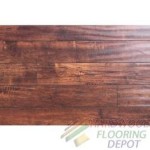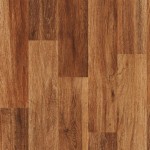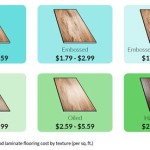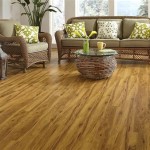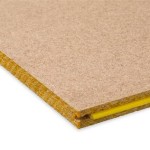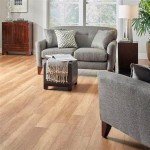Formaldehyde in Bamboo Flooring: Essential Considerations for a Healthy Home
When selecting flooring for your home, understanding the potential health implications of materials is crucial. Bamboo flooring has gained popularity as a sustainable and stylish choice, but concerns about formaldehyde emissions have been raised. This article delves into the essential aspects of formaldehyde in bamboo flooring to help you make informed decisions.
What is Formaldehyde?
Formaldehyde is a colorless, pungent-smelling gas commonly used in manufacturing various products, including building materials. It has been classified as a carcinogen by several health organizations and is known to cause respiratory irritation, eye discomfort, skin allergies, and other health problems.
Formaldehyde in Bamboo Flooring
Bamboo flooring is primarily made from bamboo strands that are compressed and bonded with adhesives. While bamboo itself does not naturally contain formaldehyde, it may be introduced during the manufacturing process. Some manufacturers use adhesives that release formaldehyde over time, leading to indoor air pollution.
Health Effects of Formaldehyde Exposure
Chronic exposure to high levels of formaldehyde can lead to severe health problems, including respiratory issues, increased risk of cancer, and reproductive complications. However, it's important to note that the levels of formaldehyde emitted from bamboo flooring are typically much lower than those found in other sources like pressed wood products or certain paints.
Choosing Low-Formaldehyde Bamboo Flooring
To ensure a healthy indoor environment, it's recommended to opt for low-formaldehyde bamboo flooring that meets established emissions standards. Look for flooring products that have been certified by third-party organizations such as the California Air Resources Board (CARB) or the FloorScore program.
Ventilation and Maintenance
Proper ventilation is essential for minimizing formaldehyde exposure in your home. Ensure good airflow by opening windows and using exhaust fans. Regular cleaning and maintenance, such as sweeping and vacuuming, can also help remove any accumulated formaldehyde emissions.
Conclusion
Choosing formaldehyde-safe bamboo flooring can contribute significantly to a healthy indoor environment. By understanding the potential health effects of formaldehyde, selecting low-formaldehyde products, and maintaining proper ventilation and cleaning practices, you can enjoy the beauty and sustainability of bamboo flooring without compromising your well-being.

Get The Facts On Formaldehyde In Bamboo Flooring

Non Toxic Bamboo Flooring Formaldehyde Free Types Brands My Chemical House

Get The Facts On Formaldehyde In Bamboo Flooring

Engineered Bamboo The Truth About Formaldehyde Water And Resins House Of

Non Toxic Bamboo Flooring Formaldehyde Free Types Brands My Chemical House

Formaldehyde Free Bamboo Flooring From Ecotimber Buildinggreen

Eco Forest Formaldehyde Free Easy Lock Bamboo Flooring Interior China Made In Com

Non Toxic Bamboo Flooring Formaldehyde Free Types Brands My Chemical House

Is Bamboo Flooring Environmentally Friendly

Green Bamboo Flooring What Matters Most Buildinggreen
Related Posts

